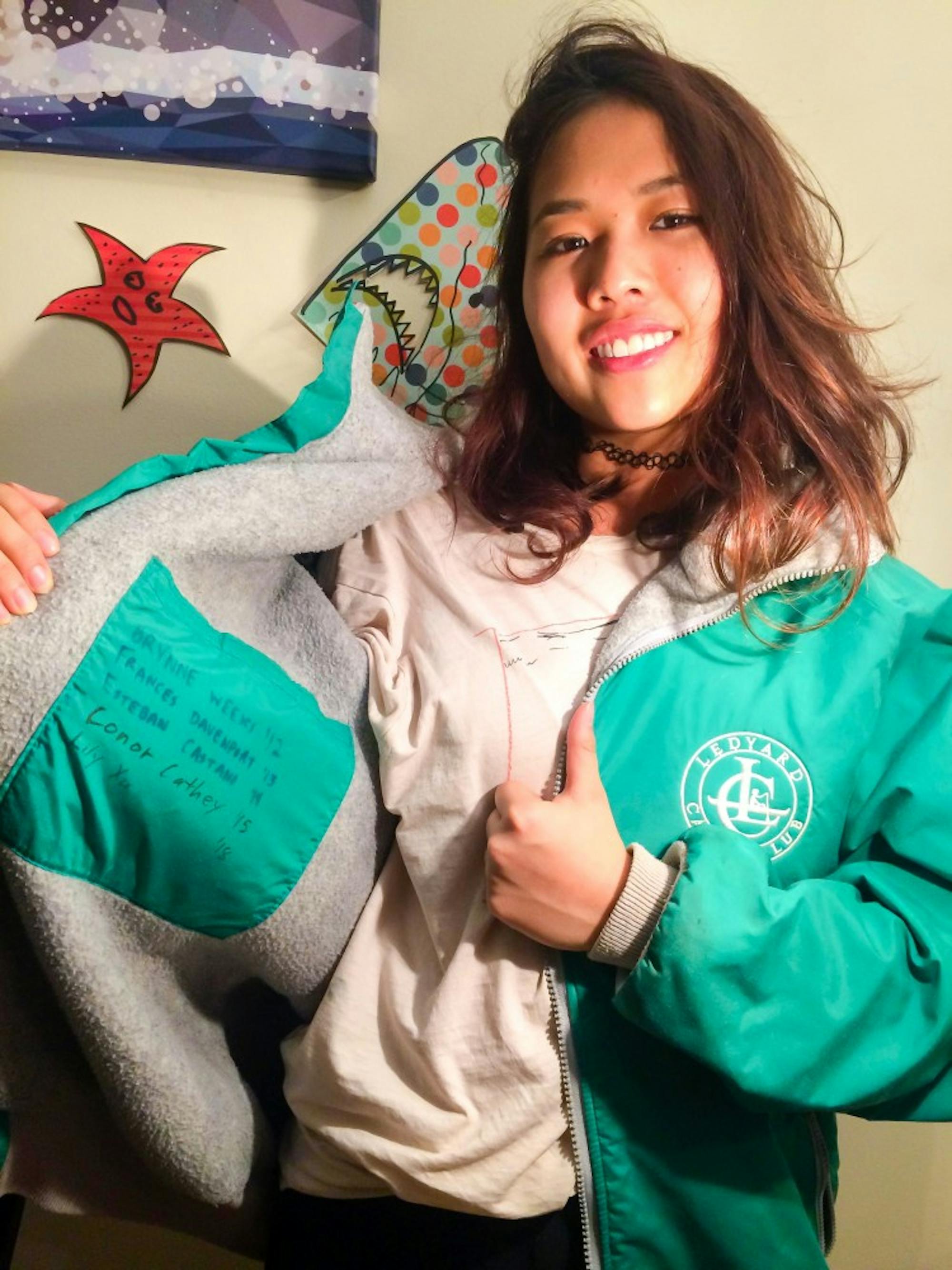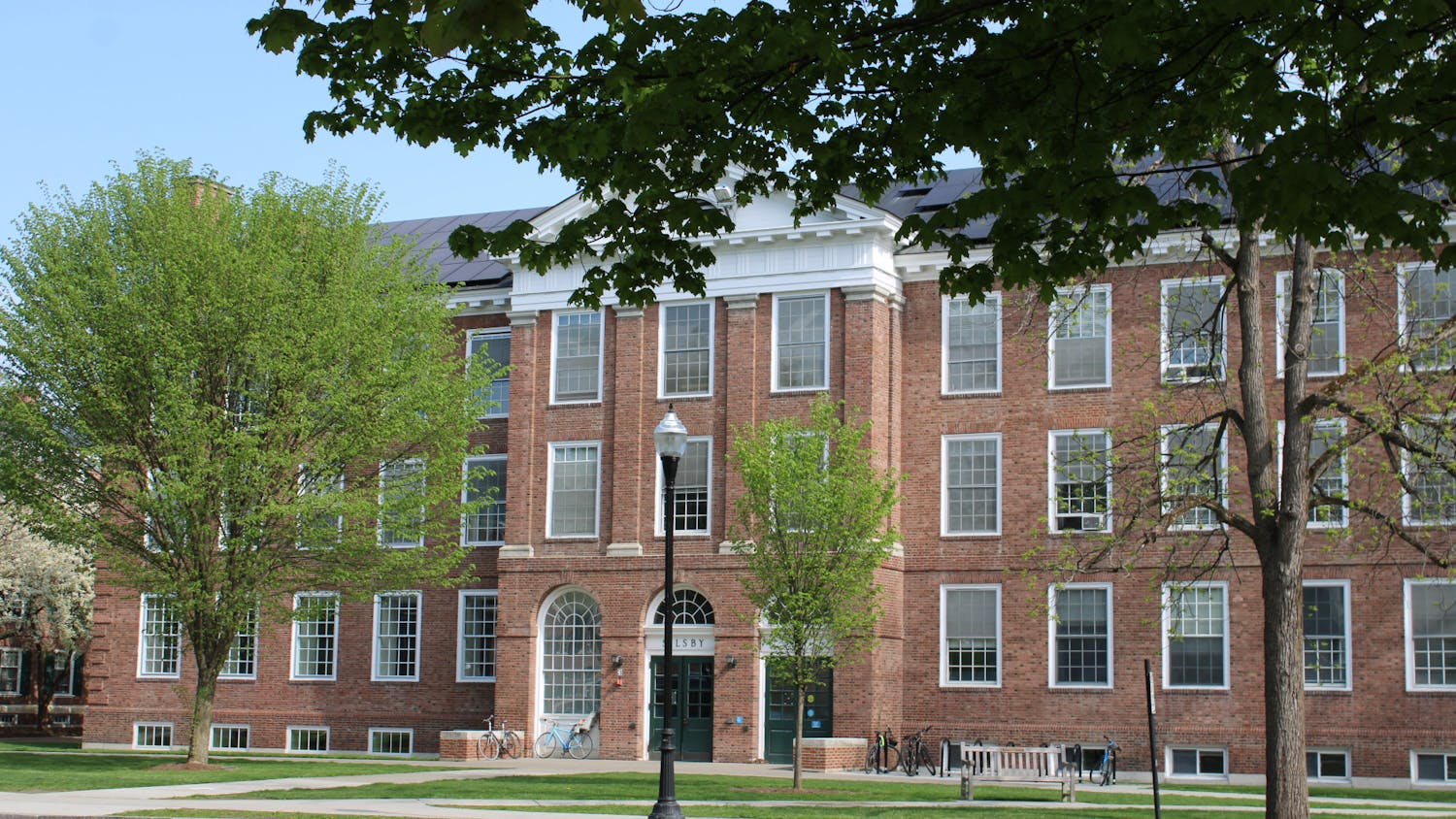While well-known traditions such as running around the bonfire during Homecoming or participating in the polar bear plunge during Winter Carnival contribute significantly to Dartmouth’s legacy, smaller traditions such as bequests help shape the College’s legacy on a more personal level.
Bequests, which are items that are cyclically passed from a senior to an underclassman, typically within an organization, are usually clothing items, but they can be just about anything that the senior wishes to pass down. For example, as a member of Phi Delta Alpha fraternity, Max McCoy ’19 has been bequested sweaters that he wears on a daily basis and noted that people have also bequested entire boxes of items, including objects such as basketballs.
“[Many of the bequests] are clothing items designed for events in the past, so we have sweaters that we designed for an event in 2012 or 2010 or even the ’80s,” McCoy said. “For example, I have a pair of shorts from the ’70s.”
For Allie Reichert ’18, a member of Chi Delta sorority, bequests have included a pair of tights that have approximately fifteen names of previous members and a floral button-down shirt that came in a shoebox with the names of all its previous owners. As a former member of the rowing team, she has also been bequested a DVD copy of “She’s the Man” that has been owned by seven different members.
While bequests may serve practical uses, they are also imbued with special meaning or sentimental value from their previous owners. For Reichert, the copy of “She’s the Man” is meaningful because it was bequested to her by someone who saw a lot of herself in Reichert. Traditionally, the DVD is also given to the “most naive, innocent freshman” on the rowing team according to Reichert. Like the DVD, the gifting of the floral button-down follows a theme: it’s given to someone whom the graduating senior will keep in touch with after graduation.
By reminding students of those who came before them, bequests tie individuals more deeply to the organization itself.
“Even though a person that you know personally gave [the bequest] to you and it was very local in that sense, you see a history behind it and you see the 10 names before you,” Reichert said. “It’s so cool that you’re connected to all these people through this random little item. [Bequests] help connect the years of people within those communities.”
Moreover, bequests do not necessarily have to be physical items. Oftentimes, bequests can be a special nickname or title that a senior assigns to an underclassman. For example, Lily Xu ’18 was bequested the nickname “Ragey Lily” by Lily Albrecht ’15.
Reichert attributes bequests to the College’s fun culture around clothing. Thus, bequests such as flair can be humorous and ridiculous, but also meaningful such that they are loyally worn during events. For example, Reichert always wears the floral-button down to Chi Delt events. For dance costumes bequested to members of dance teams like Fusion, which Xu participates in, the costumes are worn like flair but hold more symbolism because they relate specifically to the team’s history.
A bequest is also viewed as a piece of history that honors the time that the individual spends at the organization. For example, Xu was bequested a vintage, mint-green Ledyard Canoe Club jacket from the ’90s by Conor Cathey ’15.
“This is the most special bequest that I’ve received because it’s part of Ledyard history,” Xu said. “While I have my own [modern] jacket that I’ve purchased that is mine, this [vintage jacket] is my special jacket for the four years that I am here.”
Many organizations hold their own ceremonies at the end of spring term specifically to pass down bequests. For example, at Phi Delt, McCoy noted that the event can last all day, as graduating brothers announce one-by-one who will receive each bequest, with a small explanation or a quick humorous story about the history behind each bequest. At Chi Delt, for the sake of time, graduating members often only single out the most meaningful items and then bequest the other items privately. Other organizations may not necessarily have a special ceremony, but seniors personally bequest items to underclassmen regardless.
For the graduating seniors, bequesting to the next generation of members is exciting. They can create their own bequests with items with which they have had personal or emotional attachment, in addition to passing on bequests they received as underclassmen. The bequest becomes symbolic of passing down the special connection the senior has had with the organization, in addition to the excitement of letting new members shape history.
“Seeing all the new members in [Chi Delt] makes me excited for them, [especially when] I think about them getting the items and coming into positions in the house and ... shaping it into their own thing,” Reichert said.
Most importantly, by tying together long lines of members in organizations, bequests contribute to the College’s legacy as a whole. Xu recognizes that while many of the College’s organizations have decades of history, the institutional memory of each organization is often short — first-years will only know the history that seniors know. Smaller, more intimate traditions like bequests can evoke strong memories and are proof of a longer story and significance behind each organization.




